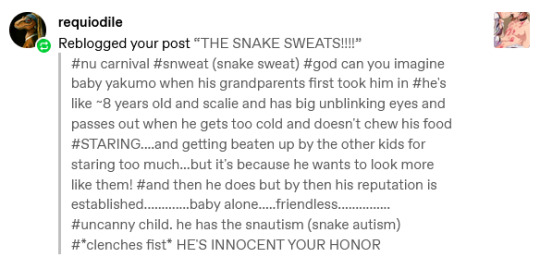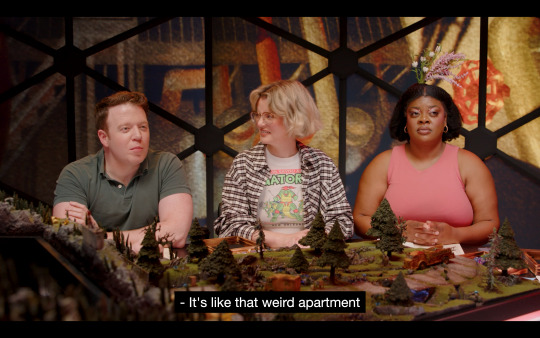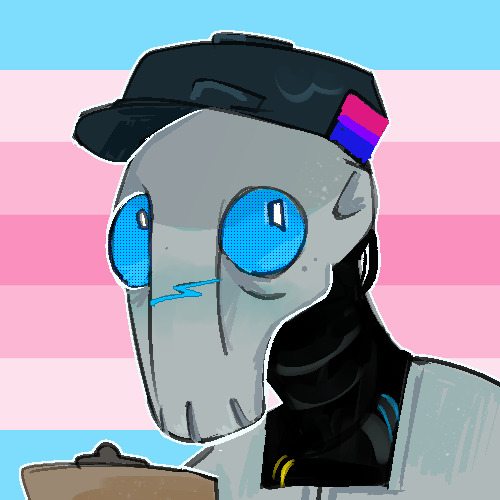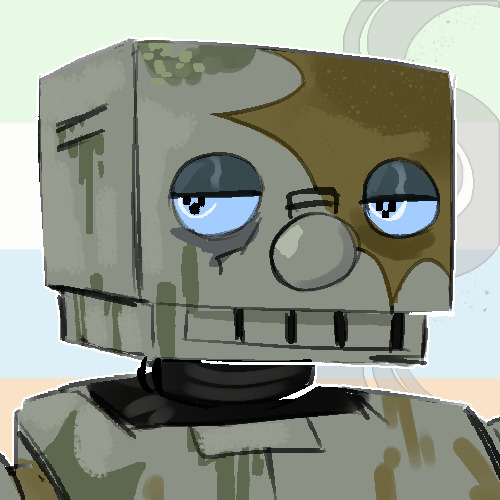#(not several that i have never seen)
Text
While some of both Davis and Crawford’s work could arguably be described as camp (for the former, King Vidor’s Beyond the Forest; for the latter, later-era films such as Strait-Jacket and aspects of the wondrous Nicholas Ray film Johnny Guitar), that their entire careers and places within film history are defined as such does a disservice to their artistry. But they aren’t alone in representing what has become a troubling trend when it comes to women’s work. As camp entered the mainstream lexicon, especially after Susan Sontag’s landmark 1964 essay, “Notes on ‘Camp,’” the term has been increasingly tied to work featuring women who disregard societal norms. Camp is often improperly and broadly applied to pop culture that features highly emotional, bold, complex, cold, and so-called “unlikable” female characters. I’ve seen films and TV shows such as the witty masterwork All About Eve; the beguiling Mulholland Drive; the stylized yet heartwarming Jane the Virgin; Todd Haynes’s Patricia Highsmith adaptation Carol; the blistering biopic Jackie; the deliciously malevolent horror film Black Swan; Joss Whedon’s exploration of girlhood and horror, Buffy the Vampire Slayer; the landmark documentary Grey Gardens (which inspired the 2009 HBO film starring Jessica Lange and Drew Barrymore); and even icons such as Beyoncé and Rihanna be described as camp. Look at any list of the best camp films and you’ll see an overwhelming number of works that feature women and don’t actually fit the label. Usually, What Ever Happened to Baby Jane?, the film whose behind-the-scenes story provides Murphy’s launching pad for Feud, will be at the top of the list.
While camp need not be a pejorative, that hasn’t stopped it from being widely used as such. In effect, being labeled as camp can turn the boldest works about the interior lives of complex women into a curiosity, a joke, a punch line. The ease with which camp is applied to female-led films and shows of this ilk demonstrates that for all the (still-paltry) gains Hollywood has made for women in the decades since Davis and Crawford worked, our culture is still uncomfortable respecting women’s stories.
That major Hollywood icons such as Marlene Dietrich, Bette Davis, Joan Crawford (and, more recently, Natalie Portman, thanks to Jackie) have been roped into this lineage isn’t surprising. Society doesn’t know what to do with women of this ilk without discrediting their very womanhood. Take artist and filmmaker Bruce LaBruce’s offensive description of Mae West in an essay on camp: “[She] played with androgyny to the degree that her final performance — her autopsy — was necessary to prove her biological femaleness.” In his 2013 essay “Why Is Camp So Obsessed with Women?”, J. Bryan Lowder expands on Sontag’s most well-known line: “It’s not a lamp, but a ‘lamp’; not a woman, but a ‘woman.’ To perceive Camp in objects and persons is to understand Being-as-Playing-a-Role.” Lowder writes, “‘Woman,’ the concept within the quotation marks, is not the same thing, at all, as a real woman; the former is a mythology, a style, a set of conventions, taboos, and references, while the latter is a shifting, changeable, and ultimately indefinable living being. Of course, there may be some overlap.” But if all gender is a performance, where does the “real” woman begin? And why does the presence of camp hold more importance than the actual work and voices of actresses such as Crawford, who have come to be defined by it?
At times, camp can feel like a suffocating label. Its proponents often misconstrue the fact that recreating oneself as a character is not merely an aesthetic for women, but rather, for many, a matter of survival. Living in a culture that profoundly scorns ambition, autonomy, and independence in women, girls learn quickly the narrow parameters of femininity available to them. When they transcend these parameters, life can get even more difficult. Women often pick up and drop various forms of presentation in order to move through the world more easily. Performance as a woman — in terms of how one speaks, walks, talks, acts — can be a means of controlling one’s own narrative. Camp often limits this part of the discussion, focusing instead on the sheer thrill of watching larger-than-life female characters cut and snark their way across the screen. How these works speak to women, past and present, becomes a tertiary concern at best, and the work loses a bit of its importance in the process; it either comes to be regarded as niche or, if it still has mainstream prominence, as abject spectacle. In turn, the conversations around these works become less about the women at their centers and more about how those women are presented.
Much of Baby Jane’s camp legacy comes down to how more recent audiences have interpreted Davis’s performance. She’s ferocious, frightening, and grotesque. But framing Davis’s performance as camp, as Murphy does, doesn’t take into account how dramatically acting has shifted over the course of film history. In some ways, camp has become a label used when modern audiences don’t quite understand older styles of acting. Modern actors privilege the remote, the cold, the detached. The more scenery-chewing performances that make the labor of acting visible — such as the transformative work that Jake Gyllenhaal did in Nightcrawler, or most of Christian Bale’s career — is typically the domain of men. (Or, at least, it’s only men who can get away with it without being called campy.) As Shonni Enelow writes in a marvelous piece for Film Comment, “[Jennifer] Lawrence’s characters in Winter’s Bone and The Hunger Games don’t arrive at emotional release or revelation; rather than fight to express themselves, her characters fight not to. We can see the same kind of emotional retrenchment and wariness in a number of performances by the most popular young actors of the last several years.” Davis’s work as an actor was the antithesis of that; she painted in bold colors. Even her quietest moments brim with an intensity that cannot be denied.
#I love being the guy who posts the article and gets to completely tear it up paragraph by paragraph until I have all my favorite parts#together 💗 but I’ve never seen Jackie and she does several paragraphs on Jackie that make me want to watch#reading#angelica jade bastién
391 notes
·
View notes
Text
stede is 'oh this place has something related to my interest i must go in immediately' autistic and izzy is 'if we deviate one inch from my plan for today i will murder someone' autistic
#stede wandering off into the forest to look at bugs was not on the schedule or any of izzys contingency schedules#new thing i think would fix izzy: a clear fucking plan#in the nebulous reunion timeline future i see izzy researching every port town they are gonna stop in HARD so he can figure out everywhere#stede + ed might possibly want to go and plan several routes for the day to keep himself calm in the inevitable chaos#(and yet somehow every time stede finds something he missed and they still go off script anyway)#(he tries to go separately around port from them one time and its a fucking disaster; someone gets stabbed; so he just resigns himself to#incredibly stressful port stops)#its not like stede + ed mean to do it!! theyre both awful for it individually and they just feed off each other#its ok because theyre very good at letting izzy have the deck Exactly how he wants it and scheduling as much big picture stuff as they can#with him#(when stede realises theyve been the cause of like. 65% of izzys stress they finally agree to let him redo the rigging as an apology and#they suddenly realise watching him buy the supplies that hes just as bad as them in his own way)#(he absolutely terrorizes the rope guy but they have never seen him so relaxed as when he was up there redoing all the lines)#nyxtalks#ofmd#izzy hands#israel hands#stede bonnet#you can pry autistic izzy away from my cold dead hands
418 notes
·
View notes
Note
neopronoun user culture is reading a book where a character uses a set of neopronouns you've never seen before and immediately wanting to use them yourself.
Neopronoun user culture
#what book!?!?!?! tell me what book anon#i have never seen neopronouns in books before so if you know of one (or several) i'd love to read it!#i usually prefer mysteries but i'll take any genre i'm that starved for rep#neopronoun#neopronouns#neopronoun user#neopronoun user culture
77 notes
·
View notes
Text
gen q why do some ppl draw the new eggs looking so much older than the other eggs like wouldn’t they technically be younger or at the very least around the same age
#.txt#especially with sunny i’ve seen like 3 different designs where she looks like she’s like 17#to somewhere in her early 20s#have you guys never met a child that likes sparkly things and dressing up before#i’m pretty sure i HAD a feather boa and several plastic crowns when i was like 7-8
98 notes
·
View notes
Note
Bakugo hot take: his character would have been better if he was a girl. This would also make him even more controversial. I will not elaborate.
Oh god this makes me wonder if. Okay so. I’m about to say something cursed. And I know I’m going to get hatemail about it (or at least very passionate explanations about why I’m wrong).
is bakudeku just yaoi reylo
#I AM REFERRING TO THE WAY I SEE PEOPLE TALK ABOUT THE SHIPS ONLINE#DISCLAIMER I HAVE NEVER SEEN A STAR WARS MOVIE#AND HAVE SEEN ONE SEASON OF BNHA SEVERAL YEARS AGO THAT I RETAINED NONE OF#I DONT EVEN KNOW WHAT I MEAN BY THIS SO INTERPRET IT UNCHARITABLY IN WAYS I DIDNT EXPECT PLEASE#not a poll#ask#anonymous#propaganda#discourse#reylo#bakudeku#bakugou katsuki
99 notes
·
View notes
Text
a bit disheartening every time i come across a yugioh character where im like "wtf this guy is great why have i literally never seen fanart of them before/only seen them in like maybe two pieces of fanworks total" and then i realize it's because they're fat/theyre visibly muscular/they have a slightly wide body type/theyre over the age of 30/theyre um. not pale/theyre some combination of the aforementioned categories. 😐 cool.
#like this is a fandom issue in general i imagine#but good god sometimes ygo fanspaces are fixated solely on Skinny Pale Characters like its their fucking job#a ygo character has visible arm muscles and i have to fight for my life to see art of them with their actual body type#(i see it more in the spinoffs?!?!? but then again sometimes people in DM spaces are racist and ageist in other new colorful ways :|)#anyway this post is about several guys but rn especially GONG MY FRIEND GONG!!!! WHY HAVE I NEVER SEEN ART OF HIM OUTSIDE OF DL#ygo posting#also hey if youre weird on this post i will block you! head's up!
55 notes
·
View notes
Text
one good thing to come of all this is the free bootlicker blocklist in these tags
#watcher#'they are not rich' bestie they are multimillionaires living in la driving teslas and eating food that#frankly should be illegal at that price esp in a fucking cost of living crisis#most of us have NEVER seen that amount of money in several generations of our family put together like be frrrrrr#i know people in that wage bracket trust me they are fine they go on rich people holidays and renovate their mcmansions#they don't give a shit about anything else they are not struggling#'u don't respect artists' they don't respect you bruv so please respect yourself😩and recognise when you are being taken for a fucking fool#and if you wanna respect struggling artists you can pay off my student loans if u like
44 notes
·
View notes
Text
just gonna go ahead and say this in advance—
if Riz does indeed come out in junior year, and he says, “I’m ace” or “I’m asexual” when referring specifically to his lack of romantic attraction, aromantic people are allowed to be upset about it.
#because yes of course some people irl say ace to mean both bc that’s how they personally identify#but in fictional media the distinction is necessary. especially with how few canonically aromantic characters even exist in ANY mainstream/#popular media.#I assure you I’m not invalidating anyone who is ace and they mean that to include lack of romantic attraction.#But to look at this from a MEDIA PERSPECTIVE its irresponsible to do this w/out clarification that they also know the word aromantic exists#because otherwise that’s just a conflation of asexual and aromantic without any nuance#and an erasure of aromantic people who are not asexual.#Plus—name a single fucking time a character in mainstream/popular media has said the word aromantic.#Because I can name several instances where they say asexual. But I can’t think of ONE where they say aro or aromantic.#(Maybe that Isaac kid does in season 2 of Heartstopper? But I haven’t seen it so I’m not 100% sure.)#anyways.#the way this fucking fandom—and ANY fandom with a canon aro character—discusses the aromantic spectrum#is blatantly just to remove their own personal guilt for shipping that character with other characters and erasing their orientation.#because yes aromanticism IS a spectrum!! But when people talk about fabriz and say ‘he can still be ace!’ (Which is aro erasure) or#‘he can still be aro!’ They never SHOW riz still being aro or having any kind of complex relationship with romance.#I’m angry and I’m allowed to be.#I get that a ship you liked may be hard to let go of or something#But I’d be much less mad if all the fabriz fans said ‘yeah I know Riz is aro in canon and he and Fabian would never get together.#I just like to imagine it sometimes in fiction/fanon!’ Then that would be a WHOLE different conversation#Because then they’d at least be acknowledging that riz doesn’t feel romance in canon. That fabriz is something that actively#Goes against the canon characterization of one of those characters—and that’s fine. Just fucking ACKNOWLEDGE IT.#But most of these people either WANT fabriz to be canon/believe it WILL BE canon#OR I guess feel uncomfortable confronting the fact that they ARE erasing riz’s aromanticism so they don’t even acknowledge it at all.#fhjy#fantasy high#d20#dimension 20#riz gukgak#aromantic riz gukgak#fhsy
22 notes
·
View notes
Text
You know, I think many people understand the idea that disability can be a social problem, even construct, in that as more visibility man lead to more accommodations and even educate (regardless of accuracy), but not that disability can still disable regardless of society. Many people understand the idea of a social construct so long as there is still a consise understanding of the social construct, with little wriggle room for nuance and discussion.
#disability#disability advocacy#saw a (classic) discussion about eyesite and glasses - how the prevalence of eyeglasses and the availability of glasses...#...means that glasses cannot ever be an aid. however there is so much that viewpoint misses...#...like i agree to an extent - my vision (though i need glasses) is not what disables me and i survive fine without corrected vision HOWEVER#glasses aren't prevalent everywhere. glasses can't fix all vision differences. glasses are a *temporary* fix#so you correctly assess the fact that the way disability is helped and seen can be affected by your environment...#...but you apply it so broadly that you miss the bigger picture...#...consider that for aids it isn't that they're cheap that makes it better...#...but that you still have to pay for the ability to be AT THE BASELINE ABLED PEOPLE ALREADY ARE BY DEFAULT...#...for glasses it isn't that you can get them for $80 instead of $300 but that you still have to pay for baseline sight...#...and that if your visual difference is severe enough glasses cannot correct your vision and you have to pay even MORE#i am not saying that every single glasses-wearer is automatically disabled by default for having eyesite differences...#...again i don't think my eyesight disables me. but that doesn't mean that it can NEVER disable people even WITH glasses#and this is a classic example i guess because so many people nowadays CAN access glasses
49 notes
·
View notes
Text
there's like, an entire other side to this I had planned but I spent way too long trying to figure out how to do it exactly so I'm decidedly done wrestling with this for now. Might clean it up and post again later?

*chanting* TKITN TKITN TKITN TKITN TKITN
also yeah return of the manbun/half up hairdo that seems to just. attach to 2/3rd of my designs for this man. I have no explanation for this. Manbun. (???)
#TKITN#I watched this scenario smp episode a while ago and OH I'm never getting over the 7th dimension chess this man was playing with the others#the only other perspective I've seen all the way through is sneves#I'm a sucker for characters with Several Braincells and the Knowledge they have Several Braincells.#ignore all of my beef with the limbs my attempts at drawing limbs are annoying adding clothes just. aught#I wasn't even going to touch on the hands. Just. No. No thank you#also do you have any idea how much looking into what specific weapon and what it looked like I had to do for this#it's not a halberd it's a Guisarme and I had to scan through that video enough to catch the nbt tags so I could google the damn thing#also the subtle lighting is one of my favourite things about this because I Have Not Done That Before. Not for metal at any rate.#anyways#*throws this into the main tag* HAVE FUN#Legundo#Scenario smp
22 notes
·
View notes
Text
What if when i move out i get a bunch of display stands for all my furbies and have my whole collection on display in a very visible part of my house so then when i have a guest over the first thing they get when they come to my house is a heart attack
#furby#all furby#furby blog#furblr#furby community#furby fandom#my furby#safe furby#no but like i do actually want to display them all properly at some point because i'm running out of space in my tiny ass bedroom#thats why we keep ebony in the living room#a bit of an odd sight for people who have never been to our place before#and probably still for my extended family who have seen it several times lol
39 notes
·
View notes
Text

SCREMS my snautsticic child
he is trying ok!!!!!! one tiny snake human hybrid built from the cave-ground-up, , attempting to learn all the implicit rules of humanness?! as if it isn't already tough enough out here!!!!
#ALL he has to work off of is the Great Serpent's memories? fuzzy clips of ppl he might have seen or interacted with??#depending on the kind of snake he was he could have a variety of defense mechanisms#he could have had to suppress his hissing instinct. or maybe he contorted his body in that adorably vertical corn snake way when he scared#big baby eyes trying to mimic the ppl around him but they are busy being judgemental#so many stupid little human things that villagers try to explain to him as “that's just the way it is” or “never really thought about why”#and yakumo just stares in disbelief bc how could u have never thought about the concept of goosebumps#you're telling me ur skin turns into plucked-bird-skin when you're cold or frightened and that is completely mundane?#you're telling me that when ppl try to hug you it is NOT because they want to strangle u to death and eat u????#how much strength am i supposed to put into a hug then. NOT bone crushimg??????#WHAT EMOTION IS THIS GESTURE SUPPOSED TO CONVEY#yakumo#the tags tho#now imagining blade and yakumo shaking hands and discussing “why are humans such funky lil guys and why do they do the things they do”#several of the non-humans gather in a monthly meeting like:#on today's agenda: WTF is kissing. why are they smashing their food holes together.#one week they bring in a guest human (edmond?) and ask him all of humanity's big questions from non-human POV#and edmond's just like ??? i don't know???!?!??#and eberyone throws up their arms in frustration bc if humans don't make sense to the humans then what are we supposed 2do
30 notes
·
View notes
Note
I haz ask... HOW THE QUACK ARE UR LINE'S SO PERFECT- SO RELAXED???!? I have never seen a stiff drawing from you, and everything looks so good.. I just Wana nibble on it! ToT
oh that! that means a Bunch <3 thank you so much <3<3
#ive always thought my art was too stiff & the lines too severe#when i did traditional i left Grooves in the paper from how hard i was pressing#so its good to know that my efforts in Relaxing My Grip have paid off!#im a little emotional now ngl!#a few days ago a certain someone described my art as 'kind' which took me the fuck out once i registered it#kind... relaxed... i never thought id get to this point!#the euphoria of going from 'constantly rigid' to 'never seen a stiff drawing from me'. im healed <3#oh if younger me could see us now!#rambles from the bog#as for How... yeah i just relax lmao#i dont press too hard and i use longer brushstrokes instead of a bunch of small ones. swoopy#honestly i think my custom brush does half the work...#i doubt my art would be half as gentle Without it!
26 notes
·
View notes
Text

This was a really unhinged way to find out about this:
#I checked several times to see if this was actually real and it literally is#like they have fancy places where their wives live but they all crash in this gross frat pad sometimes#absolutely insane bullshit and i wish i had never seen it#dimension20#burrow's end#brennan lee mulligan#aabria iyengar#dropout#chuck schumer????
23 notes
·
View notes
Note
🏳️🌈 Hc on the Inspector or Dredger?


Ya sure; why not both
Send me 🏳️🌈 and a character for my lgbtq+ headcanon and a doodle
#Re: Inbox#jewelstine#Inspector#Dredger#Pride asks#STILL DOING THESE just Extremely sporadically#Also I've gotten several characters I know nothing about. Very cool guys! I've never seen them in my life though.#I'll be honest I don't have a hc for Dredger but only realized that after I finished drawing him#So normally I would make it transparent but that looked off when Inspector had a flag behind her#So questioning it is. It would Not care in the Slightest but by merit of being a robot wouldn't fit into standards anyway. Who give a shit#(it/she for Inspector and it/he for Dredger is how it works in my brain btw. Going off of the other language translations for Inscryp)
57 notes
·
View notes